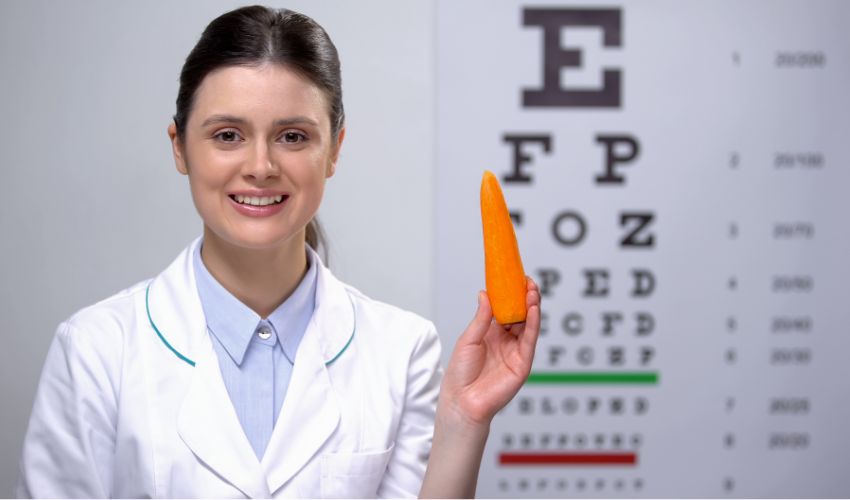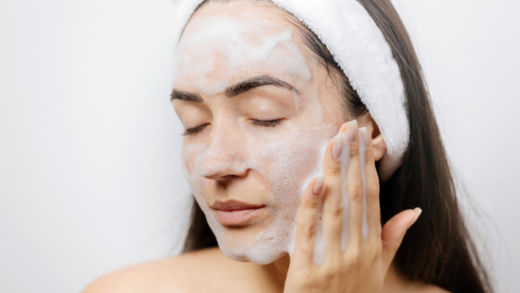Good eyesight is essential for our daily activities, from reading to driving, and even just taking in the beauty of the world around us. Healthy vision is also crucial for maintaining our overall physical and mental well-being. Unfortunately, as we age, our vision can start to decline, and with the increased use of technology, our eyes are more susceptible to strain and damage. That’s why it’s crucial to take steps to ensure we have and maintain healthy vision.
Factors that Affect Eye Health:
There are several factors that can affect our eye health, including aging, genetics, diet, exercise, and exposure to digital devices. As we age, our eyes undergo changes that can affect our vision, such as reduced pupil size and decreased sensitivity to contrast. Genetics can also play a role in the development of eye conditions, such as cataracts and glaucoma. Diet and exercise can impact eye health, with a healthy diet that includes eye-healthy foods and regular exercise helping to improve blood flow to the eyes. Exposure to digital devices can lead to eye strain and other eye-related issues, such as dry eyes and blurred vision.
Steps to Achieving and Maintaining Healthy Vision:
There are several steps we can take to achieve and maintain healthy vision. Eating a balanced diet that includes eye-healthy foods, such as leafy greens, fish, and citrus fruits, is essential for maintaining good eye health. Regular exercise helps improve blood flow to the eyes, which can reduce the risk of eye diseases. Protecting your eyes from the sun by wearing sunglasses with UV protection is also crucial, as exposure to UV rays can damage the eyes over time. Taking breaks from digital devices every 20 minutes can also help reduce eye strain and other eye-related issues. Finally, regular eye exams with an eye doctor are essential for detecting any issues early and ensuring that our eyes are healthy.

Common Eye Conditions and How to Manage Them:
Several common eye conditions can affect our vision, including myopia, hyperopia, astigmatism, presbyopia, cataracts, glaucoma, and age-related macular degeneration (AMD). While some of these conditions are genetic, others can be caused by lifestyle factors, such as exposure to digital devices. Treatment options vary depending on the condition, but can include glasses, contact lenses, and surgery.
When to Seek Professional Help:
If you experience any changes in your vision, such as blurred vision, eye pain, or discomfort, or seeing spots or floaters, it’s essential to seek professional help from an eye doctor. Eye exams can detect any issues early, allowing for prompt treatment and management of any eye conditions.
Bullet Points:
Steps to Achieving and Maintaining Healthy Vision
- Incorporate eye-healthy foods into your diet, such as leafy greens, fish, and citrus fruits.
- Get regular exercise, which helps improve blood flow to the eyes.
- Protect your eyes from the sun by wearing sunglasses with UV protection.
- Take breaks from digital devices every 20 minutes to avoid eye strain.
- Schedule regular eye exams with an eye doctor.
FAQs:
What is the recommended frequency for eye exams?
For individuals between the ages of 18 and 60, it is recommended to get an eye exam every two years. After the age of 60, it’s recommended to get an eye exam every year.
Can eye exercises improve vision?
While eye exercises can help with eye strain and other eye-related issues, they are not proven to improve vision.
Can my diet affect my eye health?
Yes, a healthy diet that includes eye-healthy foods, such as leafy greens, fish, and citrus fruits, can help maintain good eye health.

Is it necessary to wear sunglasses in the winter?
Yes, it is still important to wear sunglasses in the winter as the sun’s harmful UV rays can still damage your eyes.
What are some signs that I need to see an eye doctor?
Signs that you may need to see an eye doctor include blurry vision, eye pain or discomfort, and seeing spots or floaters.
Conclusion:
In conclusion, having healthy vision is crucial for our overall well-being. By understanding the factors that affect our eye health and taking steps to protect our eyes, we can ensure we have good vision well into our later years. Remember to eat a balanced diet, get regular exercise, protect your eyes from the sun, take breaks from digital devices, and schedule regular eye exams with an eye doctor. By following these simple steps, we can maintain healthy vision and continue to enjoy the beauty of the world around us. Don’t take your eyesight for granted, start taking care of your eyes today to ensure a healthy vision for a lifetime.






















